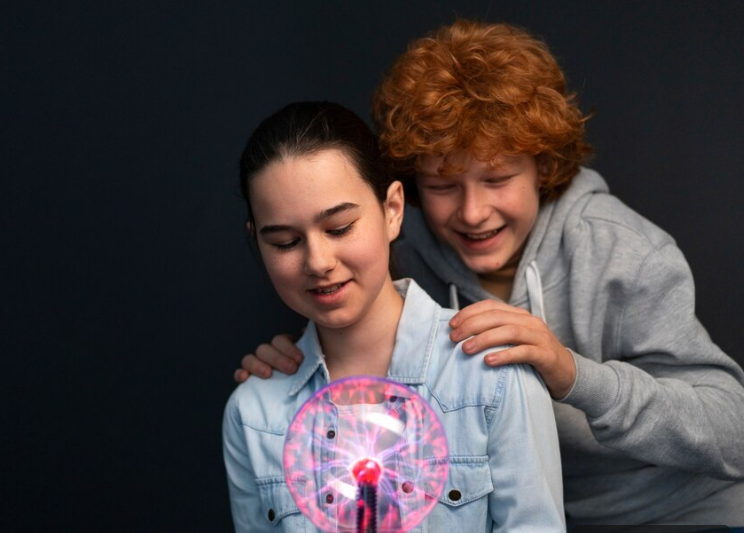Mental health plays a vital role in overall well-being, influencing every aspect of life. Among the many mental health concerns, autism and depression stand out due to their significant impact on individuals and families. For those living in San Fernando, Los Angeles County, CA, understanding these conditions and knowing where to find support and resources is essential.
The Intersection of Autism and Depression
Autism spectrum disorder (ASD) is a complex developmental condition that primarily affects social interaction, communication, and behavior. While ASD is often diagnosed in childhood, its symptoms can persist into adulthood, especially if undiagnosed early.
Depression, on the other hand, is a common mental health disorder marked by persistent feelings of sadness, hopelessness, and a lack of interest in activities. Individuals with autism are at a higher risk of developing depression, with studies suggesting that approximately 20–50% of people with ASD experience depression at some point in their lives.
Who is Most Affected?
Autism spectrum disorder (ASD) primarily manifests in childhood, yet it is a lifelong condition. Symptoms vary greatly but often involve challenges with social interaction, communication difficulties, and a preference for repetitive behaviors. These challenges can lead to feelings of isolation, frustration, and, in many cases, depression. Social isolation is often worsened by bullying, an unfortunately common experience for individuals on the spectrum.
Depression can affect individuals of any age, but when it coexists with autism, it presents unique challenges. People with autism may struggle to express their emotions or seek help, making diagnosis and treatment more complex.
In San Fernando and the broader Los Angeles County area, families often turn to specialized care to address both autism and depression. The region offers a range of resources, including therapists trained in autism spectrum disorders, support groups, and educational programs designed to improve communication skills and social interaction.
Brain Health USA understands the unique struggles of individuals with ASD and provides specialized psychiatric care tailored to their needs. With a team of experienced professionals, they offer comprehensive assessments, therapy, and medication management to help individuals navigate social, emotional, and behavioral challenges.
Recognizing the Symptoms
Signs of Autism:
- Delayed milestones – Slower attainment of developmental achievements expected at certain ages, affecting physical, social, emotional, and cognitive growth.
- Difficulty with verbal and nonverbal communication – Challenges in expressing thoughts and understanding others, including speech, gestures, and facial expressions.
- Restricted interests or obsessive behaviors – An intense focus on specific topics or activities, often to the exclusion of other interests.
- Sensory sensitivities – Heightened or diminished responses to stimuli such as sounds, lights, textures, tastes, or smells.
Symptoms of Depression:
- Persistent sadness or low mood – A prolonged emotional state of unhappiness and discouragement.
- Loss of interest in activities – Reduced enthusiasm or motivation for hobbies, social events, or daily tasks.
- Changes in appetite or sleep patterns – Noticeable shifts in eating and sleeping habits, often linked to underlying mental health conditions.
- Fatigue and difficulty concentrating – A persistent lack of energy and trouble maintaining focus.
The Importance of Professional Help
Managing autism and depression can be challenging for individuals and families. These conditions often coexist, creating a complex web of challenges that require specialized care. Mental health professionals play a crucial role in diagnosing, treating, and supporting those affected.
Specialized Knowledge and Expertise
- Understanding complex interactions – ASD and depression can intensify one another, requiring professionals who can address both conditions simultaneously.
- Comprehensive assessments – Thorough evaluations help develop a personalized treatment plan tailored to an individual’s strengths, challenges, and history.
- Evidence-based interventions – Proven approaches such as cognitive-behavioral therapy (CBT), social skills training, and specialized educational programs.
Tailored Care for Unique Needs
- Personalized treatment plans – Each individual receives a care plan designed to meet their specific needs and goals.
- Support across the lifespan – Ongoing care ensures individuals continue to receive support as they grow and their needs evolve.
- Family involvement – Educating and guiding families helps them provide effective support at home and in social settings.
Taking the First Step
Navigating autism and depression requires patience, support, and professional guidance. In San Fernando, Los Angeles County, CA, expert assistance is available through providers such as Brain Health USA and healthcare professionals who accept Health Net insurance.
Early identification and specialized care help individuals and families manage autism and depression more effectively. Whether through therapy, medication, or community resources, taking the first step toward mental wellness is essential.
Additional Resources and Next Steps
If you’re ready to seek help, consider these actionable steps:
- Schedule a consultation – Contact a psychiatrist in San Fernando, Los Angeles County, CA who accepts Health Net insurance to discuss the best care plan.
- Explore therapy options – Look into behavioral therapies and treatment programs tailored to autism and depression. Many providers offer sliding scale fees or accept Health Net for affordability.
- Engage with local support networks – Join support groups in the San Fernando area to connect with others and gain practical coping strategies.
- Educate yourself and your family – Utilize resources from Brain Health USA and other trusted organizations to foster understanding and effective support strategies.
- Advocate for awareness – Participate in mental health awareness events to help build an inclusive community and connect with others facing similar challenges.
The Role of Brain Health USA
Organizations like Brain Health USA provide invaluable resources and expert insights into managing autism and depression. Their services include educational materials, therapy programs, and family guidance to support individuals on their mental health journey.
Empowering Your Journey
Living with autism and depression can be challenging, but remember—you are not alone. With the right support, treatment, and resources, individuals can successfully manage these conditions and lead fulfilling lives.
In San Fernando, Los Angeles County, accessible healthcare, community resources, and organizations like Brain Health USA offer a supportive environment for those affected.
Take each step with confidence, knowing that help is available. Reach out, connect, and empower yourself with the knowledge and support needed to thrive.
For more information on autism and depression resources, visit Brain Health USA and connect with the San Fernando mental health community today. Your mental health matters, and taking proactive steps can lead to a healthier, more balanced life.
Strick reminder from Brain Health USA to seek a doctor’s advice in addition to using this app and before making any medical decisions.
Read our previous blog post here: https://brainhealthusa.com/psychiatrist-in-san-dimas-los-angeles-county-california/











